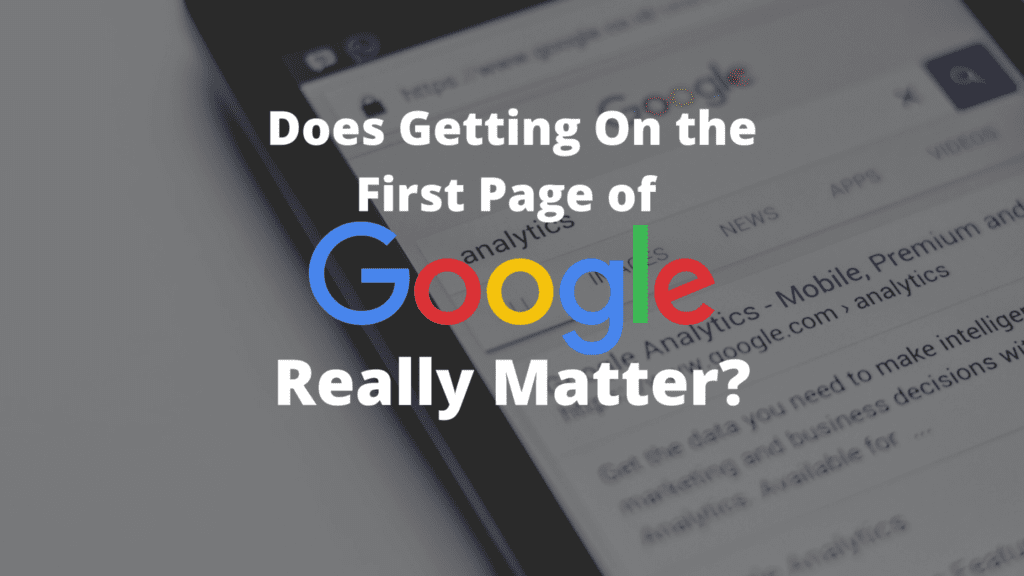When was the last time you clicked past page one on Google? If you’re like most people, probably never. Research shows that 92% of consumers pick a business from the first page of search results, making your SERP (Search Engine Results Page) ranking more important than ever.
But here’s the twist: with Google’s AI-powered search evolving in 2025, it’s not just about keywords anymore—it’s about visibility in AI Overviews, local packs, and organic results. In this guide, we’ll break down why page one matters, what influences consumer behavior, and practical strategies to get your business ranking where it counts.
What is SERP (And Why It’s Changing in 2025)?
SERP stands for Search Engine Results Page—the page you see after entering a search query. Traditionally, SERPs featured ads on top, followed by organic listings (“10 blue links”).
Today’s SERPs include:
- Paid ads (Google Ads, Shopping Ads)
- Local Packs (Google Maps & Business Profiles)
- AI Overviews (Google’s new AI-powered summaries)
- Featured Snippets (position zero answers)
- Organic Listings
Ranking isn’t just about “page one” anymore—it’s about showing up across these placements. Need help covering all bases? Check out our SEO services and local SEO services for a complete strategy.
Why Does Being on Page One Matter?

- Click-Through Rates (CTR): The first organic result gets ~27% CTR, the second 15%, and the 10th just 2.5%【Sistrix 2024 Study】.
- Trust & Authority: Businesses on page one are seen as more credible.
- Competitive Advantage: If you’re not there, your competitors are.
Pro Tip: Even if you don’t rank #1, appearing in AI overviews or map packs can dramatically increase your exposure. Need guidance? Contact Reliqus to start ranking faster.
The Impact of Local Search on Consumer Behavior
- 78% of local mobile searches lead to an offline purchase within 24 hours (Think with Google, 2024).
- 84% of consumers trust online reviews as much as personal recommendations (BrightLocal, 2024).
- “Near me” searches grew by 500% in the past 5 years, and they’re still climbing.
Local SEO isn’t optional—it’s how modern consumers decide where to eat, shop, or hire services. Every day you delay optimization, your competitors are capturing your potential customers.
How to Improve Your SERP Ranking in 2025
1. Optimize for AI Overviews
- Use clear, concise answers in your content.
- Add FAQs in natural language.
- Structure pages with schema markup.
2. Local SEO First
- Optimize your Google Business Profile (photos, reviews, categories).
- Create location-specific landing pages.
- Build citations in local directories.
3. Content That Wins
- Answer “People Also Ask” questions.
- Write long-form guides (like this one) with subheadings.
- Refresh old blogs with new data.
4. Backlinks & Authority
- Earn links from niche blogs, chambers of commerce, and local news.
- Guest post on industry websites.
- Use digital PR for high-authority mentions.
5. Technical SEO & UX
- Speed up your site (Core Web Vitals).
- Ensure mobile-first design.
- Improve site navigation and internal linking.
What Happens If You Don’t Appear on Page One?
- Lost Customers: 92% of clicks never go past page one.
- Credibility Gap: Businesses ranking lower look less trustworthy.
- Higher Costs: You’ll rely more on paid ads to get seen.
Don’t risk it—book a free consultation and secure your spot on page one.
Real Case Studies
- Plumbing Business, Michigan: Increased organic traffic by 75% in 3 months after local SEO optimization.
- Restaurant, California: Optimized GMB + local content → 20% more phone calls in 6 months.
- Retail Chain: Used location-specific landing pages + AI snippet targeting → doubled conversions.
(See our full range of results in the Reliqus portfolio.)
Examples of Brands Winning Page One
- Starbucks – Location-optimized pages & local packs.
- Domino’s – Perfect GMB setup with accurate menus/hours.
- Home Depot – “Near me” search dominance with local pages.
FAQs
Q1. How long does it take to rank on the first page of Google?
Anywhere from 3–6 months for low-competition keywords, up to 12+ months for competitive terms.
Q2. Can small businesses outrank big brands?
Yes—with niche targeting, local SEO, and long-tail keywords, small businesses can capture highly valuable local searches.
Q3. Is it worth paying for SEO services?
Absolutely. SEO generates compounding results, unlike ads, which stop once you pause spending.
Conclusion
Appearing on the first page of SERPs—and now in AI Overviews—is no longer a nice-to-have; it’s survival. With 92% of consumers choosing page-one businesses, investing in SEO today means more leads, more trust, and more sales tomorrow.
Ready to see your business on Google’s first page?

